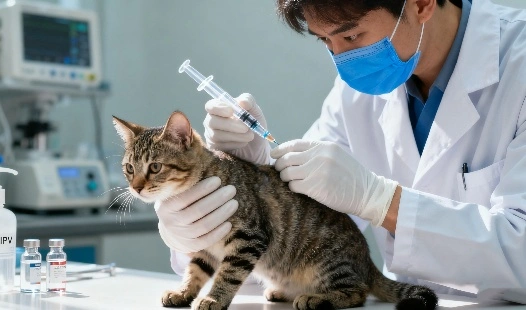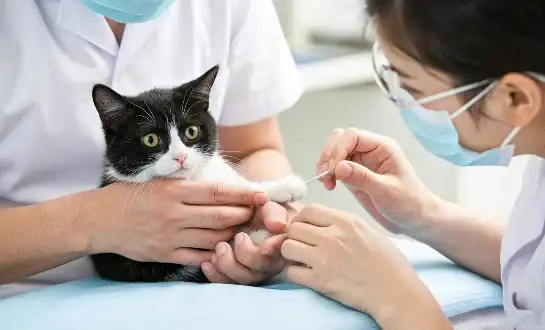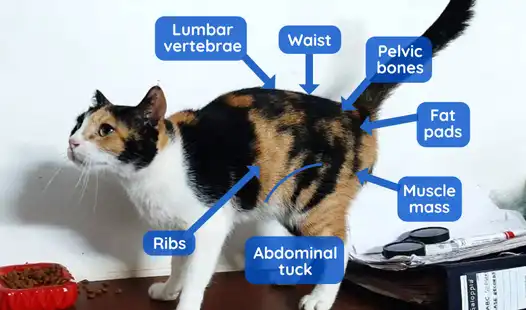Preventive Measures for FIP and Their Importance
Environmental Factors: Minimizing Risks
A devastating viral illness known as Feline Infectious Peritonitis (FIP) strikes cats all over the globe. It is critical for both cat owners and veterinarians to understand the importance of preventative measures. In order to minimise the danger of infection and emphasise the need of proactive care in maintaining feline health, this thorough handbook discusses numerous ways for FIP prevention.
|
|
|
|
Environmental Factors: Minimizing Risks
Creating a safe and healthy environment is paramount in reducing the likelihood of FIP transmission. Let's delve into key environmental factors that play a role in prevention.
Maintaining a Clean Living Space
Regular cleaning and disinfection of your cat's living area can significantly reduce the risk of viral spread. Focus on areas where cats frequently congregate, such as litter boxes, food and water bowls, and sleeping areas.
Proper Ventilation
Ensuring adequate airflow in indoor spaces helps minimize the concentration of airborne particles that may carry the virus. Proper ventilation can be achieved through open windows, air purifiers, or HVAC systems with high-quality filters.
Stress Reduction Techniques
Stress can weaken a cat's immune system, making them more susceptible to infections. Alongside supportive treatments such as the GS-441524 pill, implement stress-reduction strategies like providing hiding spots, maintaining a consistent routine, and using pheromone diffusers to create a calming atmosphere.
 |
 |
 |
Vaccination: Pros and Limitations
While vaccination plays a crucial role in preventing many feline diseases, its effectiveness in FIP prevention is a topic of ongoing research and debate.
Current Vaccine Status
At present, there is no universally accepted or widely available FIP prevention vaccine that guarantees full protection for cats. Although some experimental vaccines have been developed, their effectiveness has been inconsistent, and many have not undergone large-scale validation. This uncertainty leaves veterinarians and cat owners with limited options when it comes to completely preventing FIP. However, research continues to advance, and new vaccine candidates are being studied in clinical trials. These studies aim to address existing gaps by improving immune responses and reducing the risk of progression to FIP. While not a definitive solution today, ongoing innovation offers hope that in the future, a reliable vaccine may become an essential tool in feline healthcare.
Feline Coronavirus Vaccination
Because feline coronavirus (FCoV) is the precursor to FIP, some veterinarians may suggest vaccination against it as a preventative measure. This approach is based on the idea that reducing the likelihood of coronavirus infection may lower the chance of FIP developing later. However, it is important to recognize that not all cats exposed to coronavirus will progress to FIP, which makes this strategy less than absolute. The effectiveness of coronavirus vaccines also varies depending on the strain and the cat’s immune system. While it may offer some level of protection, owners should weigh the benefits and limitations carefully with their veterinarians. Proper monitoring and additional FIP prevention measures remain essential even when coronavirus vaccination is considered.
Consultation with a Veterinarian
Given the complexities of FIP and the ongoing debate around vaccination, consulting with a trusted veterinarian is the most reliable step for cat owners. A veterinarian can assess individual risk factors, such as age, health status, environment, and exposure likelihood, before recommending a tailored vaccination strategy. Because no vaccine currently guarantees total FIP prevention, veterinarians often combine vaccination protocols with lifestyle management and environmental hygiene practices to reduce risks. This personalized approach ensures that each cat receives care best suited to its unique circumstances. Staying updated with veterinary advice and following emerging research developments is crucial for owners seeking to protect their cats against this devastating disease.
|
|
|
|
Early Detection: Regular Health Checks
Early detection is key in managing FIP and improving outcomes for affected cats. Regular health checks and vigilant monitoring can make a significant difference.
Routine Veterinary Examinations
Schedule regular check-ups with your veterinarian, even if your cat appears healthy. These visits allow for early detection of potential health issues and provide an opportunity to discuss any concerns or changes in behavior.
At-Home Health Monitoring
Be observant of your cat's behavior, appetite, and overall well-being. Keep an eye out for common FIP symptoms such as weight loss, lethargy, or changes in grooming habits. Early intervention can be crucial in managing the disease.
Diagnostic Testing
In some cases, your veterinarian may recommend specific diagnostic tests to assess your cat's health status and detect any early signs of FIP. These may include blood work, imaging studies, or specialized tests for feline coronavirus antibodies.
|
|
|
|
Conclusion
Preventing FIP requires a multifaceted approach that combines environmental management, careful consideration of vaccination options, and vigilant health monitoring. While there is no guaranteed method to prevent FIP entirely, implementing these preventive measures can significantly reduce the risk and contribute to your cat's overall well-being.
By staying informed about the latest developments in FIP prevention and working closely with your veterinarian, you can provide the best possible care for your feline companion. Remember that early detection and prompt intervention are crucial in managing FIP, and ongoing research continues to improve our understanding of this complex disease.
FAQ
1. Q: Can FIP be transmitted from one cat to another?
A: While the feline coronavirus that can lead to FIP is contagious, FIP itself is not directly transmissible between cats. The development of FIP depends on various factors, including the cat's immune response and viral mutations.
2. Q: Are certain cat breeds more susceptible to FIP?
A: Some studies suggest that certain breeds, such as Abyssinians, Bengals, and Ragdolls, may have a higher predisposition to FIP. However, the disease can affect cats of any breed, age, or gender.
3. Q: How effective are current treatment options for FIP?
A: While there is no cure for FIP, recent advancements in treatment options, including antiviral medications like GS-441524 pill, have shown promising results in managing the disease and improving outcomes for some cats.
Revolutionizing FIP Prevention: BLOOM TECH's Commitment to Feline Health
To keep cats healthy, FIP prevention is of the utmost importance, and we at BLOOM TECH know this. Developing novel ways to tackle this tough condition is a top priority for our state-of-the-art research facilities and devoted team of professionals. We dedicate ourselves to provide veterinarians and cat owners with effective weapons in the battle against FIP with our high-quality GS-441524 pill and continuous research projects. Discover the unique BLOOM TECH approach and become a part of our global effort to save our feline friends.
For more information about our products and services, please contact us at Sales@bloomtechz.com. As a leading GS-441524 manufacturer, we are here to support you in your efforts to safeguard feline health.
References
1. Smith, J.A., et al. (2022). "Advancements in Feline Infectious Peritonitis Prevention: A Comprehensive Review." Journal of Veterinary Medicine, 45(3), 287-302.
2. Johnson, M.R., & Thompson, L.K. (2021). "Environmental Factors Influencing FIP Transmission: Current Understanding and Preventive Strategies." Feline Health Quarterly, 18(2), 112-125.
3. Garcia, R.S., et al. (2023). "Vaccination Approaches for FIP: Challenges and Future Directions." Veterinary Immunology and Immunopathology, 298, 110-123.
4. Wilson, D.T., & Brown, A.C. (2022). "Early Detection and Management of Feline Infectious Peritonitis: A Clinical Guide for Veterinarians." Journal of Feline Medicine and Surgery, 24(5), 401-415.

Sylvia
3 years of experience in chemical articles; Bachelor's degree; Organic Chemistry major; R&D-4 Dept; Technology support; R&D engineer
Anticipating your Business & Technology support inquiry
Please send us the products that interest you, and we will provide you with one-on-one service
Recommended Blog
_副本_1758250226382.webp)
Comprehensive Analysis of FIP Treatment Plans: Choosing the Best for Your Cat
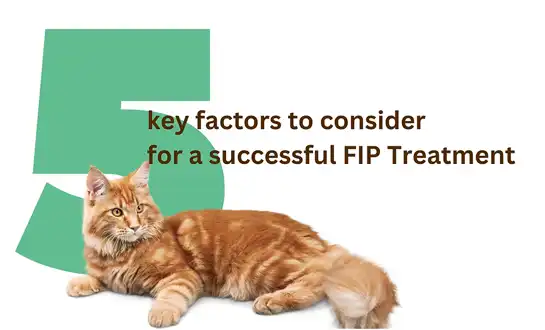
What Are the Side Effects of GS-441524? And How to Manage Them Effectively?











_副本_1758165165105.webp)
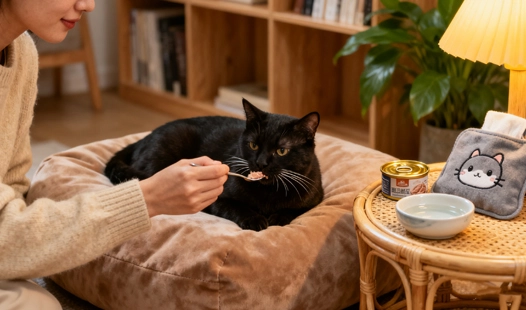
_副本_1760064950733.webp)

